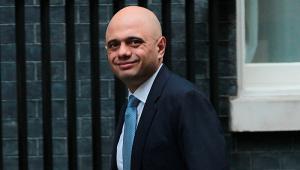Areas that did not have a strong business economy would not be able to raise as much revenue through the rates, Rob Whiteman, chief executive of CIPFA, told the communities and local government committee yesterday.
He said: “Councils that will benefit [from business] rate retention—those with a high yield of business rates—greatly welcome 100% rate retention.
“Councils that will not benefit as quickly from rate retention feel the need for a fair funding review to run alongside it”.
The fair funding review is reassessing the way government grant is allocated out to councils.
Whiteman added some councils “will be disappointed that at this stage it is 75%”.
The government is reducing the amount of grant it gives to councils and will allow them to keep 75% of business rates by 2020-21, as communities secretary Sajid Javid confirmed in the draft local government settlement in December last year.
The original plan was councils would be able to keep 100% of business rates in two years time, although it is unclear whether this proposal will now - if ever - be implemented.
Whiteman added many councils saw their ability to retain a greater proportion of business rates in their areas as a positive move towards devolution “rather than government sucking [up] those taxes and redistributing them”.
David Simmonds, vice-chairman of the Local Government Association, suggested that “councils do not all start from the same place”.
Large metropolitan councils would see greater returns from business rates than more rural councils with less businesses, he told the MPs.
Janice Gotts, deputy city treasurer of Manchester City Council – which is a 100% business rate retention pilot – called the scheme a “fantastic opportunity” but was quick to point out that uncertainty about how the scheme will be implemented made financial planning difficult.
Paul Carter, chair of the County Councils Network, at the same session yesterday noted that the variation in council tax levels between county councils is “enormous” and that this would need to be considered by the fair funding review.
The Ministry of Housing, Communities and Local Government is currently consulting on the fair funding review. The consultation ends on 12 March.
It has looked at local authorities’ relative needs and resources as well as at how council tax income should be taken into account when redistributing business rates at local government finance settlements.










